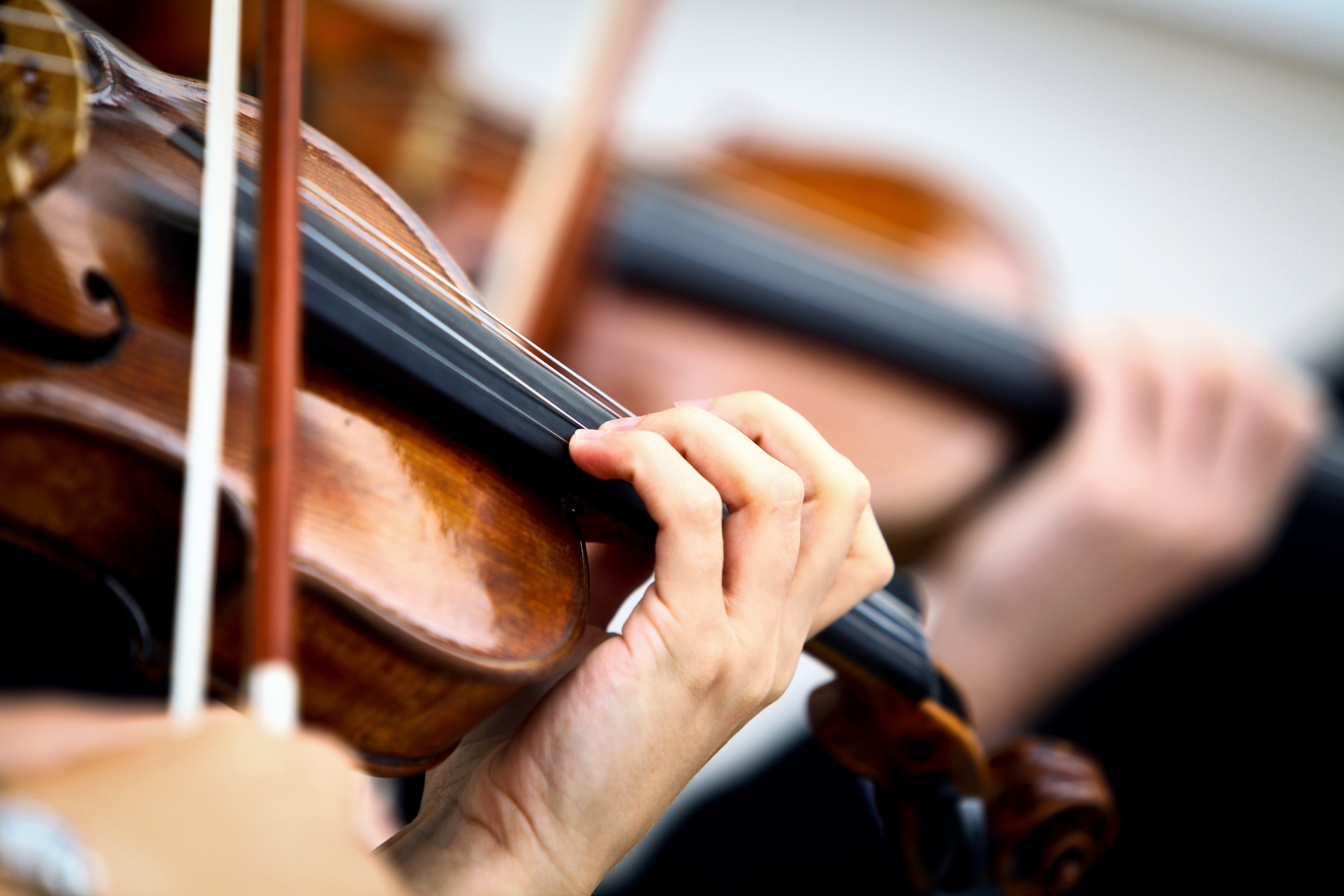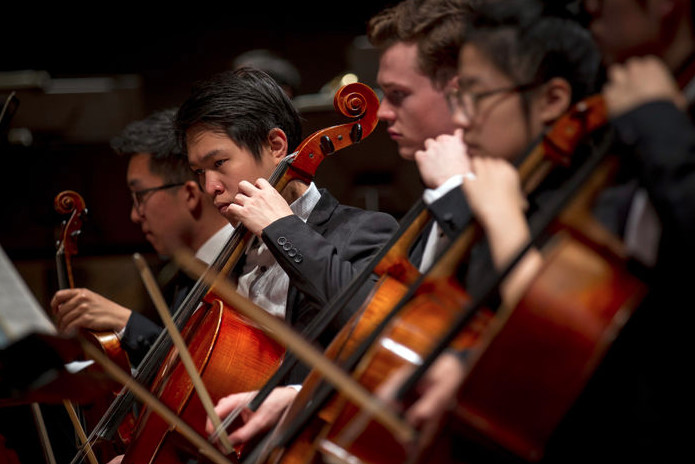
Arts & Culture
From “failed musician” to innovative entrepreneur

Young musicians from the University of Melbourne Symphony Orchestra will embark on their first international tour to Singapore and Shanghai. Among the works will be the world-premiere of Tide by composer and arranger Alice Humphries...but she won’t be there to see it
Published 14 September 2018
My orchestral work Tide will receive its world-premiere on the upcoming University of Melbourne Symphony Orchestra Tour, taking place in Melbourne, Shanghai and Singapore. It’s a short orchestral piece that works as a concert opener that was both challenging rewarding to write.
I love to use processes and data found in nature and natural phenomena as part of my compositional process. Tide is inspired by the ocean, specifically tidal movements.
It was written at a time I was living near the sea – walking along the beach every day and seeing how the sand shifted and the beach transformed with different tides. Observing the different swells, winds and currents of the ocean.
I’m about to have a baby, which is very exciting. But it also means I can’t go on the tour or attend the premiere as I’ve moved back to Perth to be closer to family.

Arts & Culture
From “failed musician” to innovative entrepreneur
The most challenging aspect is actually that I can’t attend the rehearsals, which is where, for me, the music really comes to life. That’s when you can make little changes and talk with the musicians directly. But thanks to the wonders of modern technology I can hear recordings of the rehearsals and get feedback from the musicians and the conductor, Head of Orchestral Studies, Associate Professor Richard Davis really easily.
I’ve had a very busy and productive few years writing music and am about to embark on the very exciting and scary journey of parenthood. I’m looking forward to seeing how my creative desires evolve (or not!) with becoming a mother.
I’m wanting to do some more work in electro-acoustic music and write a series of solo works which are some areas I haven’t explored much yet.
Arranging was how I first came to music composition – I did a jazz arranging unit at the West Australian Academy of Performing Arts (WAAPA) when studying jazz saxophone performance, and for me working as an arranger and orchestrator is a wonderful addition to the fabric of my professional life. I get to use all these skills that I’ve built up over the years but with a totally different set of parameters from when I’m composing.
Arranging is working with someone else’s composition or song, and is about staying true to the song, supporting that singer or performer and presenting their work in a new context. It’s a great challenge that I really enjoy.
I’d like to continue evolving and making music with like-minded performers and instrumentalists, and to do more collaborative work with artists in film, dance and theatre.
I came to Melbourne in 2013 to do my Master of Music (Composition), which I finished in 2016. I’m now halfway through my PhD in which I’m looking at how I use constraints in my creative process, as well as how I can use data and the processes present in nature and natural phenomena in my creative process.
One of the reasons I chose to study at the Melbourne Conservatorium was the opportunity to write for orchestra through the partnership the Faculty of Fine Arts and Music has with the Melbourne Symphony Orchestra. So, it’s great to now be writing for the University of Melbourne Symphony Orchestra as well.

It would be hard to narrow it down to one thing that I’ve learned while at Melbourne – there have been so many lessons, great workshops and opportunities that I’ve got so much out of.
But one thing is the importance of writing music that is convincing, honest and genuine – so, writing as if it will be performed with only me in the audience.
Do I love it? Do I find it compelling? Does it move me or excite me? Keeping those questions firmly in mind while continuing to explore new sounds and take risks has been the best lesson I’ve learned.
I didn’t have any sense growing up that I was going to become a composer. My background is actually in jazz. On finishing high school, I enrolled in a one-year Certificate IV course in jazz saxophone at the WAAPA as a “gap-year” – after which I was planning to do physio or nursing. But I was having so much fun I decided to stick with music.
My musical tastes are very varied. I played cello and piano in my early years and I still love the cello repertoire, and I also really enjoy listening to medieval music such as Hildegard Von Bingen. I fell in love with jazz in my early teens and still listen to everything from Bessie Smith and Billie Holiday through to contemporary jazz and modern big band music. I also love ambient and experimental electronic music on labels such as 12k, and, along with just about everyone else, I love Radiohead.

I’m a strong believer in the importance of having a work-life balance and having things outside of music the stimulate and interest you. I love surfing, and it’s something that gives me so much joy and helps me stay mentally fresh.
I love to get out of the city and to be in nature. My husband and I have a camper van and we’ve been surfing and camping all over the east coast of Australia. I’m also an avid reader, and love to cook (and eat!) and share great food and wine with friends.
There are some really incredible ways in which orchestras and acoustic instruments can interact and be combined with studio techniques and sampling processes, but personally I love working with instrumentalists and trying things and collaborating together to get the sound I am seeking.
What’s to be gained from a life in music? For me it’s great joy, and the pleasure of sharing my love of music with musicians and audiences.
As told to Paul Dalgarno
The University of Melbourne Symphony Orchestra will perform at the Melbourne Recital Centre on Friday 21 September, the Esplanade Concert Hall, Singapore, on 25 September, and the Shanghai Symphony Concert Hall, China, on 28 September. Visit the University of Melbourne Symphony Orchestra Asia Tour website.
A version of this article was co-published with Precinct.